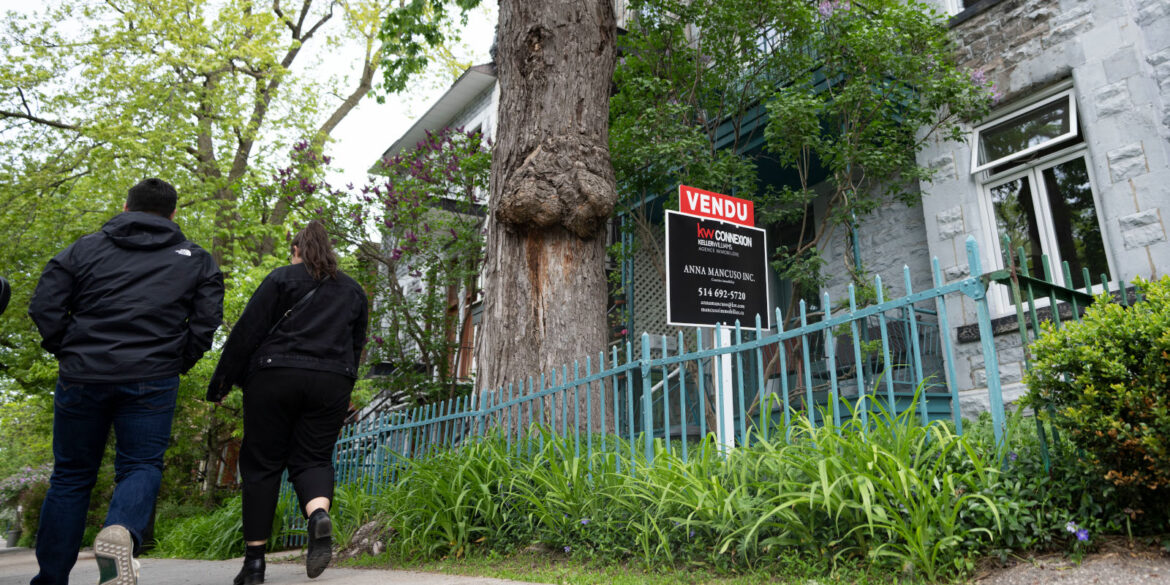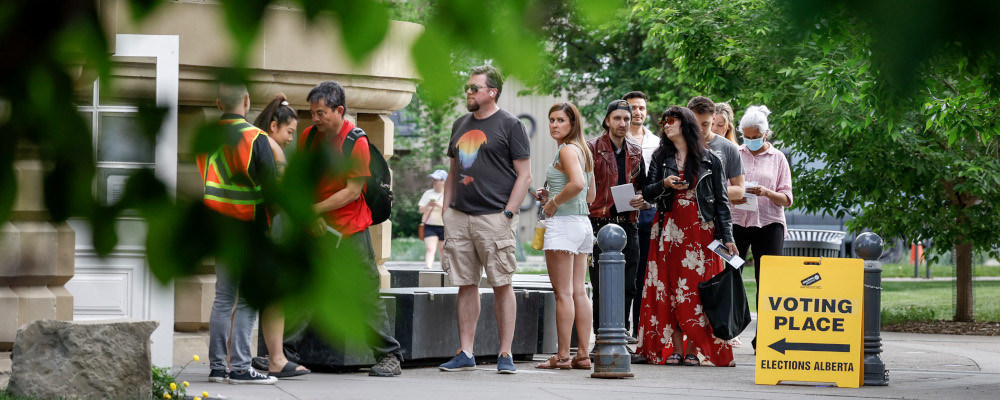I don’t own a home yet.
It’s a little embarrassing to admit that, as a former elected official. Most people would assume that politicians are all, at the very least, homeowners. Sometimes, as we’ve learned recently, they even own two or three!
But it’s a less surprising fact when you know that I’m a millennial.
Born in 1991, the year the Soviet Union collapsed, I am part of a generation that spans the 15 years between 1980 and 1995.
While we remember fax machines, dial-up, and grandma’s rotary phone, we grew up alongside the explosion of the internet, cell phones, and social media. 9/11 happened when we were children and most of us started working right when the 2008 Global Recession hit.
We are the children of the baby boomers. Our parents listen to 70s & 80s rock and disco. For the most part, many of them owned the homes we grew up in.
But while many of us have grown to appreciate Queen, ABBA, and the Stones, home ownership has not been passed down quite so easily.
The millennial housing hurdle
75 percent of Baby Boomers in Canada own their own home. For millennials, that number slips to around 50 percent. The picture is much grimmer in our major cities, with only 30 percent of millennials in Toronto and Vancouver owning a home. For those millennials who do own homes, financial support from their parents is a key determining factor. Dual incomes are almost always a necessity.
These statistics don’t surprise me. In my broader friend group, only five couples have broken into the housing market in the past four years. All of them have dual incomes and four of them benefited from financial support from their parents for the down payments. Ask any of them and they will readily admit that those factors were the only things that made it possible. Timing was also helpful.
For those who haven’t broken into the market yet and might not be able to benefit from parental support, the picture is pretty bleak. The average list price of a home in Canada in July was $757,300. In Toronto and Vancouver, that number topped $1 million. The average annual income for a millennial is currently $44,093. Of note, millennial homeowners’ after-tax income is more than double that of millennials who aren’t homeowners, meaning the disparity is quite large within the upper and lower echelons of the cohort.
With numbers like these, it shouldn’t surprise anyone that one in four millennials in Canada has given up on the dream of home ownership entirely. The math just doesn’t add up.
While my partner and I aren’t there yet, we haven’t given up. With my partner recently graduating, we have now become a dual-income couple. We both have graduate degrees and strong skill sets. We were both blessed to have received financial support from our parents to help lower the burden of post-secondary education. And, as a government employee on the sunshine list, I am fortunate to earn an income of over $100,000. We’re strivers and with some hard work and careful planning, we’ll get there eventually.
But it won’t be easy. And if we didn’t have all of those positive factors running in our favour, we’d probably be close to giving up too.
Many older Canadians point to the fact that they too faced hurdles in entering the housing market at our age given high interest rates at the time of their purchase. Interest rates are a key part of the problem, to be sure, but millennials today are facing a complex matrix of challenges. Not only are we vying with high interest rates which make monthly payments difficult, but we are also dealing with escalating real estate prices (which necessitate astronomical down payments), stagnant wages, and an overly competitive market that is fueling bidding wars. While I would never downplay the significant sacrifices that my parent’s generation had to make to buy a home and raise a family, those challenges shouldn’t minimize the compounding hurdles that we now face.
Every millennial is awake to this challenge because every one of us is either living it or watching a friend struggle with it. For our generation, housing will be one of the defining policy problems we tackle in our lifetimes.
The consequences of not meeting this challenge are clear. As more young people are denied the chance to enter the housing market, they are barred from the chance to build equity in the same way their parents did (worsening that intra-cohort wealth disparity). They fall more to the mercy of a viciously competitive rental market. And they are faced with difficult decisions regarding starting a family, given the barriers to upsizing from rental condos to family dwellings.
Many people have written about the solutions to this problem, including here at The Hub. The fundamental realities of supply and demand necessitate a mammoth effort to construct more units across the country to meet the demand and pull prices down. Debates are also happening about the impact of immigration on the housing supply. It’s a circular problem: you can’t build more houses without an influx of skilled labour from abroad, but we don’t have enough houses for the people already here.
However, despite the fact that we largely agree on the problem and the solutions, this issue continues to cause headaches to governments across the country.
Recently, Prime Minister Justin Trudeau came under fire for remarks suggesting that it is difficult for the federal government to tackle the housing crisis because it isn’t an area of federal responsibility.
Critics pounced. In the grand scheme of salient issues in Canada, housing is arguably in the top three. Conservative Leader Pierre Poilievre was quick to denounce the comments, hammering home on his message of “removing gatekeepers to get more houses built.”
Likewise, the issue is plaguing other levels of government. Despite their positive efforts to tackle the housing supply shortage provincewide, the Ontario government is facing blowback over an auditor general report suggesting that its process for allocating more land for housing may have been mismanaged. Meanwhile, Olivia Chow, Toronto’s new mayor, is coming face to face with the reality that her ambitious goals on affordable housing may not be realistic without more funds from above.
Jurisdictionally, I don’t think the answer is as confusing as the prime minister might suggest. The federal government must step up financially to support the provinces and municipalities, who in turn need to get the right mix of new builds approved and the right workers trained to build them.
You get what you vote for
So, who then bears the moral responsibility to see this through? The answer, in my opinion, is millennials.
Since 2019 millennial voters have made up the largest voting bloc in Canada. However, people of my generation have consistently lagged behind older generations in voter turnout. This means that, disproportionately, the political class has an incentive to consider the needs and wants of older generations, who, as I have already noted, have much higher levels of home ownership already. NIMBYism amongst older generations is tempting to politicians.
That NIMBYism—a key deterrent for densification and development policies—comes in every political stripe. Progressives appeal to them on ecological protection and anti-development measures. Conservatives reach out with promises to protect pensioners and “communities”.

I remember door-knocking in my recent election in a suburban part of my former riding that tended to vote conservative. Most residents in this neighbourhood were older homeowners, living in post-war bungalows on large plots of land. Consistently, the number one issue I was hearing at the door from people committed to voting was concern over new development in the area. Alternatively, many of the millennials I’d meet had little interest in the election. While we don’t know for certain what the vote turnout by age was in the 2022 Ontario election, the anemic 43 percent turnout rate combined with historical trend data would suggest that young voters weren’t rushing to the polls. I’d bet that most of those older voters did though.
By not voting, running for office, or participating actively in politics, millennials cede the ground on this battle to those who do show up (and to those who are the loudest).
Now, I’m not saying this needs to be a generational zero-sum game. I’m confident that both sides can prosper with the right policies. But first, the millennials need to get into the game.
And, as far as I can see, smart housing policy is open for any party or leader to seize, regardless of partisan affiliation. They need the right policies and the right language.
Can the Conservatives capitalize?
Recent polling is promising on this front for Conservative Leader Poilievre. Defying traditional logic that says that millennials are overwhelmingly more progressive, Abacus polling shows Poilievre opening up a 9-point lead over Prime Minister Trudeau amongst millennial voters. While there could be many factors at play, I’d wager that Poilievre’s consistent, simple messaging on home ownership has something to do with it.
So why would the Conservatives be tackling this challenge, given the political risk of angering another segment of the voting population?
Well, firstly, as I’ve argued above, the millennial vote is up for grabs. As we’ve learned in recent years (2015 Canadian federal election, 2016 Brexit election, 2016 U.S. election), elections can be won by expanding the voter pool, rather than going after the same ones as everyone else. Prime Minister Trudeau did this himself. In 2015 he appealed to millennial voters with a promise to legalize marijuana and do politics differently (“sunny ways”). Younger voters turned out, helping to deliver his majority. This a proof point that, given the right incentive, my generation will get out to the polls.
But there’s a second, less talked about factor that might be at play. A quick Google search of the federal Conservative caucus reveals that almost 20 of the 117 CPC members are millennials themselves. That’s almost one-fifth of the caucus. Among its ranks are members of the leadership team, like Melissa Lantsman and Eric Duncan, shadow cabinet members like Adam Chambers, and even their newest MP, the recently-elected Shuv Majumdar. The traditional view of the Conservative Party being the party of the older, Caucasian man is changing.
Millennials need to get in the game
As I know from my time in office, having a seat at the table matters. I was the second youngest MPP in my term in office and joined a caucus that included fellow millennials like Andrea Khanjin, Stephen Lecce, and Dave Piccinni. I’ve written here before about how much of a difference an elected official can make. Being able to bring relevant experience—including generational perspective on issues like housing—is critical to the policymaking process.
Running for office is daunting at any age. For millennials, they need to consider whether they want to subject themselves to the vitriol of campaigning and social media (see my reflections here). They also need to ask themselves if they can afford to run, given that many of us don’t yet have equity built up as a result of the challenges I’ve discussed above. Beyond this, many also question the wisdom of taking a job that requires long hours and many days away from their partners and families for less pay than most could make doing similar work and hours in the private sector. Don’t forget, most of them are still trying to save up for a home!
From personal experience I can say that all of these challenges were present during my time in office. The financial strain of my first election was grueling and the constant trips back and forth from my riding to Queen’s Park were not easy on my relationship. And without a supportive partner I’d be a lot further away from home ownership.
I’ve often quoted my former boss and mentor, the late Jim Flaherty, who said that public service “is the most satisfying and personally enriching career you will ever find”. These words are very true. But if that is the moral reason for millennials to enter public office, here is the practical one: in order to tackle the policy challenges that face us, like housing, we need more of us to run for elected office.
Our generation needs to step up. We need to: (1) demand more from our elected officials; (2) vote, vote, vote (the math is clear, we can make a difference!); and (3) increase our participation (including by running!). All parties should take note. A play for millennial voters, particularly by solving the housing crisis, could lead to long-term political gains by locking down a key cohort of voters.
As fictional President Jed Bartlett says in the television political masterclass The West Wing, “Decisions are made by those who show up”. It’s time for us to take that advice.
Recommended for You

‘Speak to the injustice’: Why the Carney government must call out China’s brazen prosecution of Jimmy Lai

Oh, Mandy! Starmer’s naïveté comes back to bite him

‘We are highly exposed’: Why Japan’s election landslide is a warning sign for Canada’s fiscal future

Does Japan’s election lay the groundwork for a Liberal majority this spring?



